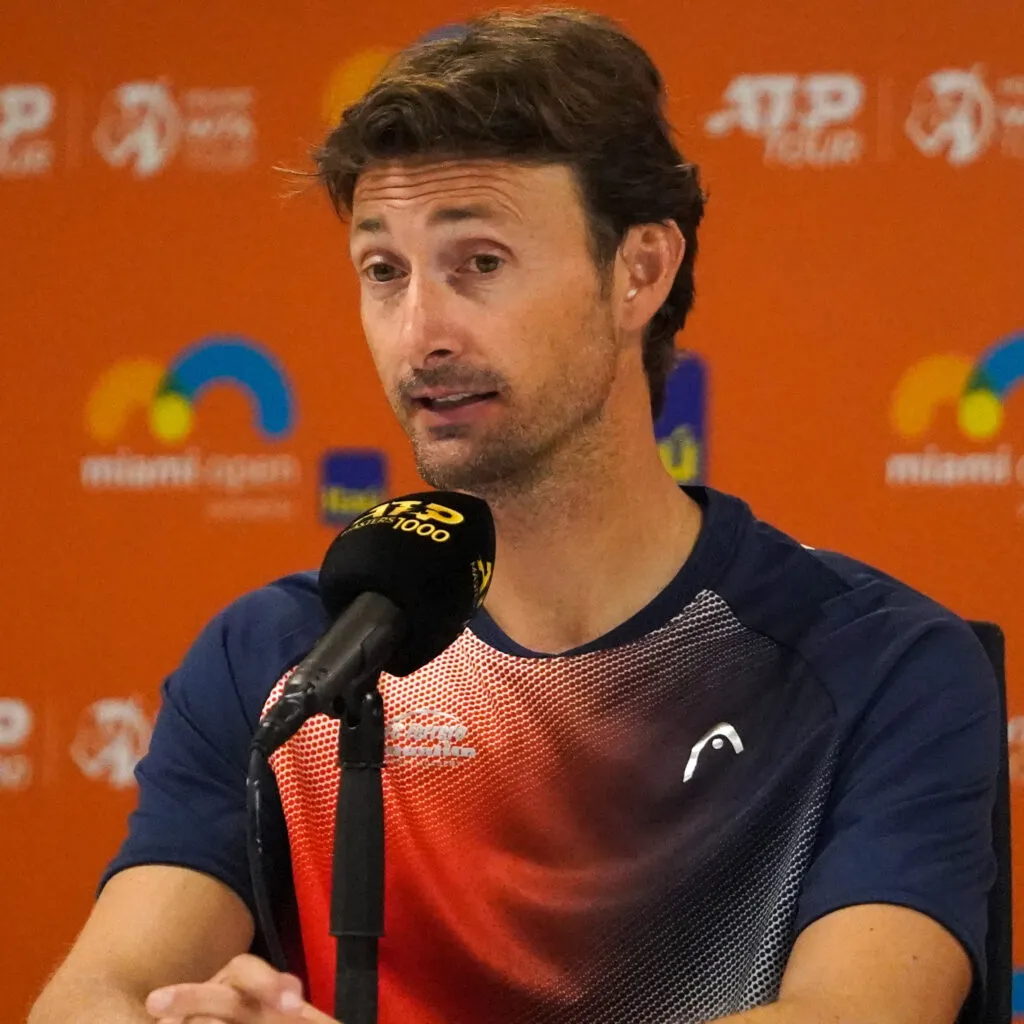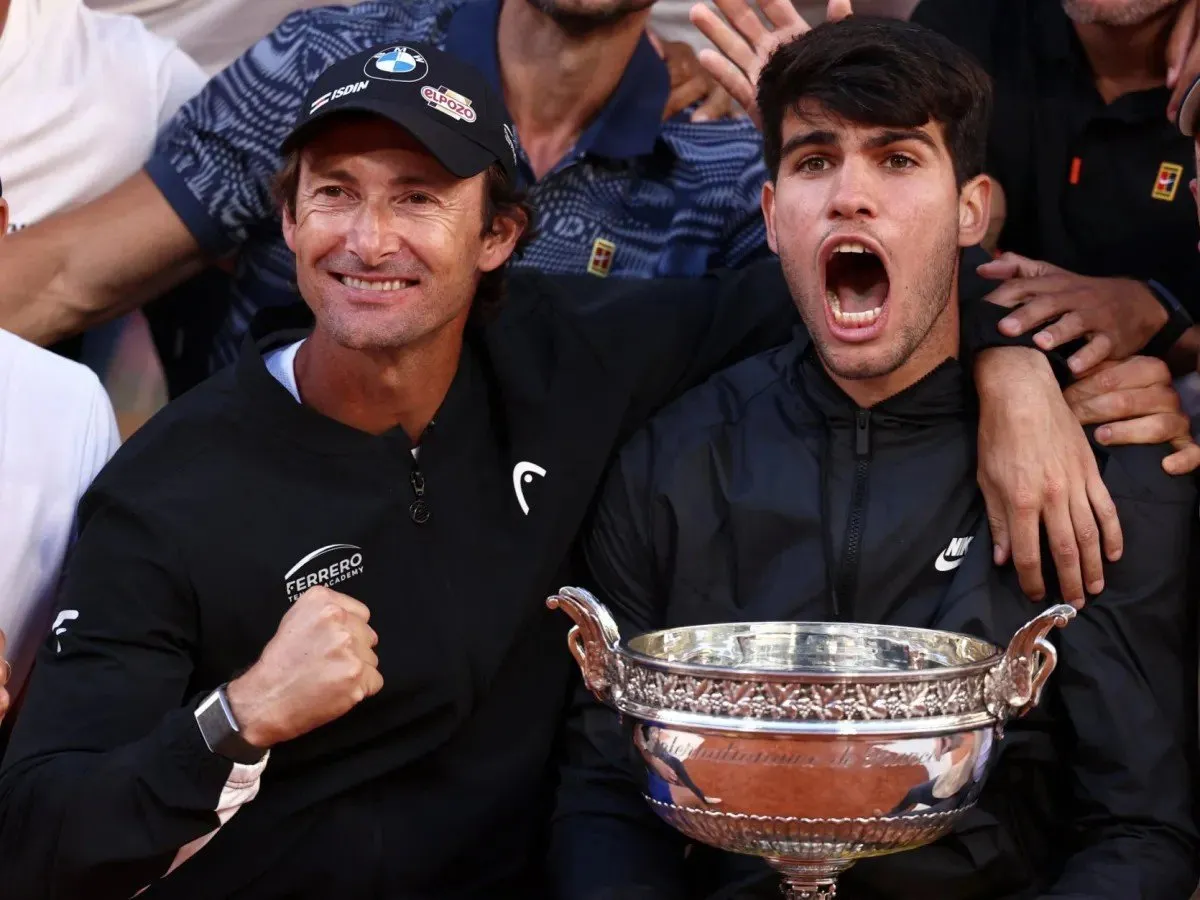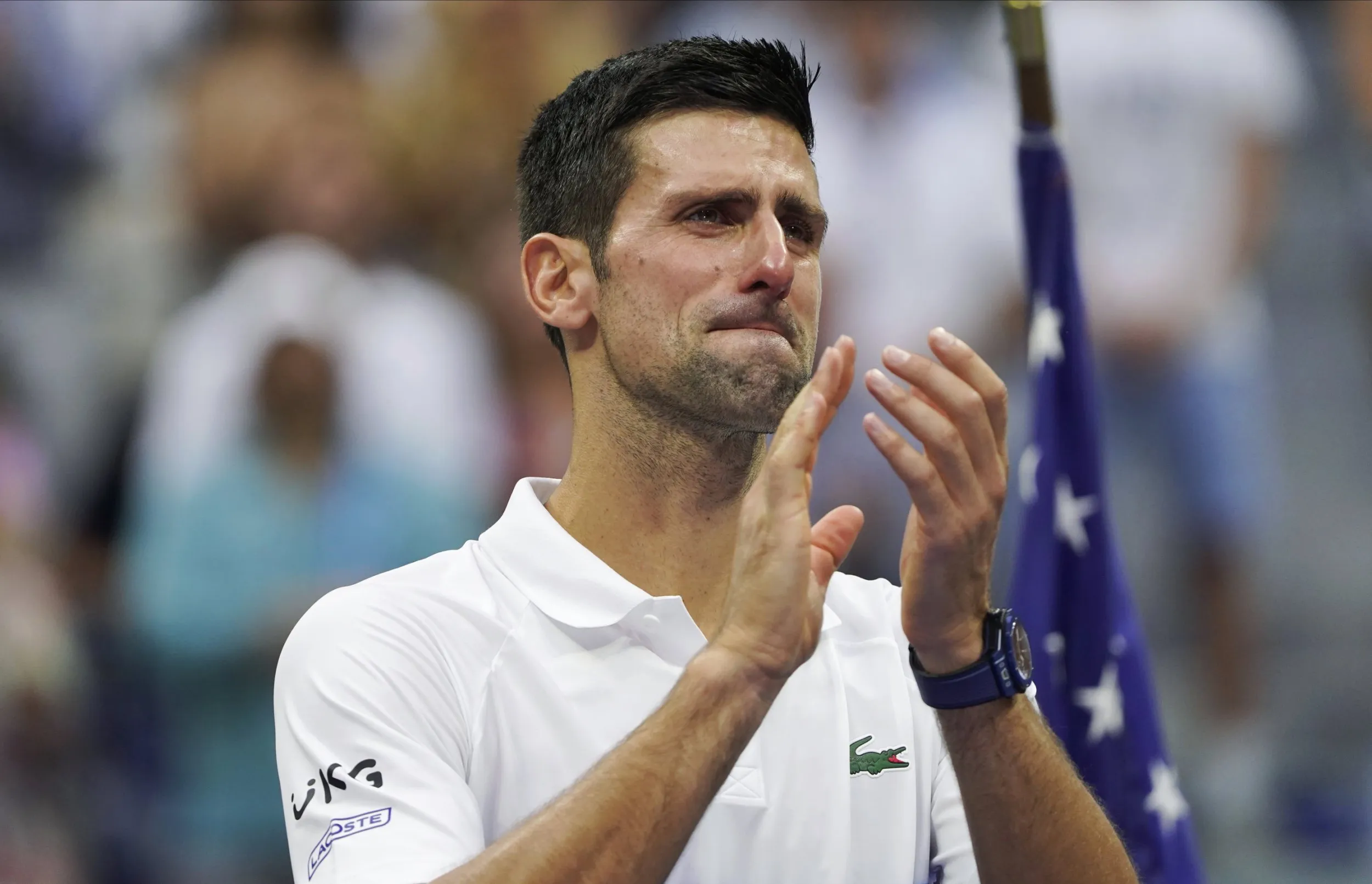The tennis world was abuzz with reactions following the recent Wimbledon final, and one comment that has stirred controversy came from Juan Carlos Ferrero, the coach of Carlos Alcaraz. Ferrero used the word “outclass” when discussing Alcaraz’s victory over Novak Djokovic, prompting a debate among fans and analysts about whether the term was disrespectful to the Serbian legend.
Carlos Alcaraz’s victory over Novak Djokovic in the Wimbledon final was a landmark moment. The young Spaniard’s win ended Djokovic’s bid for his 24th Grand Slam title and marked a significant shift in the tennis landscape, highlighting the rise of a new generation of players ready to challenge the established stars.
Juan Carlos Ferrero, a former world No. 1 and current coach of Alcaraz, praised his protégé’s performance, stating that Alcaraz had “outclassed” Djokovic in the match. This comment quickly caught the attention of the tennis community, leading to discussions about its implications.
The term “outclass” generally means to perform significantly better than one’s opponent, often in a way that highlights a clear superiority in skill, strategy, or execution. In the context of sports, it is used to describe a dominant performance where one competitor outperforms another by a noticeable margin.
Fans of both players have expressed their opinions on Ferrero’s choice of words. Supporters of Djokovic, a player widely regarded as one of the greatest of all time, felt that the term was dismissive of his incredible achievements and the level of competition he brings to every match.
– “Djokovic is a legend, and using ‘outclass’ seems disrespectful considering all he has accomplished,” said one fan on social media.
– “Alcaraz played an amazing match, but Djokovic is never truly outclassed. He’s a fighter to the end,” commented another.
On the other hand, fans of Alcaraz and neutral observers viewed Ferrero’s comment as a fair assessment of the match’s outcome, praising the young Spaniard’s exceptional performance.
– “Alcaraz deserved the win, and he did outclass Djokovic in that match. It’s just the truth,” a fan tweeted.
– “Ferrero’s comment highlights Alcaraz’s incredible potential and the level he has already reached,” another added.
Tennis analysts and former players have also weighed in on the debate. Some believe that Ferrero’s comment was a straightforward assessment of the match, while others suggest it could have been phrased differently to show more respect to Djokovic.
– John McEnroe, a former Wimbledon champion, stated, “Alcaraz was phenomenal, no doubt about it. But calling it ‘outclassing’ might be a stretch given Djokovic’s resilience and skill.”
– Martina Navratilova, another tennis legend, remarked, “Alcaraz played better on the day, and it’s a huge compliment to him. But we should always remember the greatness of Djokovic.”
Ferrero’s comment reflects the shifting dynamics in tennis, where young talents like Alcaraz are starting to make significant impacts against established legends. While the term “outclass” may seem harsh to some, it also underscores the exceptional performance of Alcaraz in a high-stakes final against one of the sport’s greatest players.
Whether Juan Carlos Ferrero’s use of the word “outclass” was disrespectful or not largely depends on perspective. To Djokovic’s fans and those who hold his legacy in high regard, the term might appear dismissive. However, for others, it simply acknowledges the outstanding level of play that Carlos Alcaraz exhibited in the Wimbledon final.
Ultimately, the comment highlights the natural evolution in sports where new talents rise and challenge the established order. Both Alcaraz and Djokovic have proven themselves as exceptional athletes, and this match will be remembered as a significant moment in tennis history.

 BREAKING NEWS: Matt Pryor Returns to Eagles in an Emotional ‘Full Circle’ Moment – Fans React with Surprise and Nostalgia
BREAKING NEWS: Matt Pryor Returns to Eagles in an Emotional ‘Full Circle’ Moment – Fans React with Surprise and Nostalgia
 LEAKED SHOCKER: Bill Belichick Chose “Draft Bust” N’Keal Harry Over A.J. Brown and Deebo Samuel for a Reason That’s Making Everyone Outraged!
LEAKED SHOCKER: Bill Belichick Chose “Draft Bust” N’Keal Harry Over A.J. Brown and Deebo Samuel for a Reason That’s Making Everyone Outraged!
 Jelena Djokovic REVELA tijdens de derrota in de finale van Miami Open 2025, waar Djokovic een contrato de 50 miljoen dollars met Messi heeft gesteund, terwijl hij veel fanatieke fans heeft van de details van zijn contrato-detail!
Jelena Djokovic REVELA tijdens de derrota in de finale van Miami Open 2025, waar Djokovic een contrato de 50 miljoen dollars met Messi heeft gesteund, terwijl hij veel fanatieke fans heeft van de details van zijn contrato-detail!


 SHOCKING NEWS: RFEF Bans Barcelona from Using 2 Key Stars for Rule Violations – Missing Two Crucial Attackers, Coach Hansi Flick Unveils “Secret Weapon” for Copa Del Rey Final Against Real Madrid.
SHOCKING NEWS: RFEF Bans Barcelona from Using 2 Key Stars for Rule Violations – Missing Two Crucial Attackers, Coach Hansi Flick Unveils “Secret Weapon” for Copa Del Rey Final Against Real Madrid.